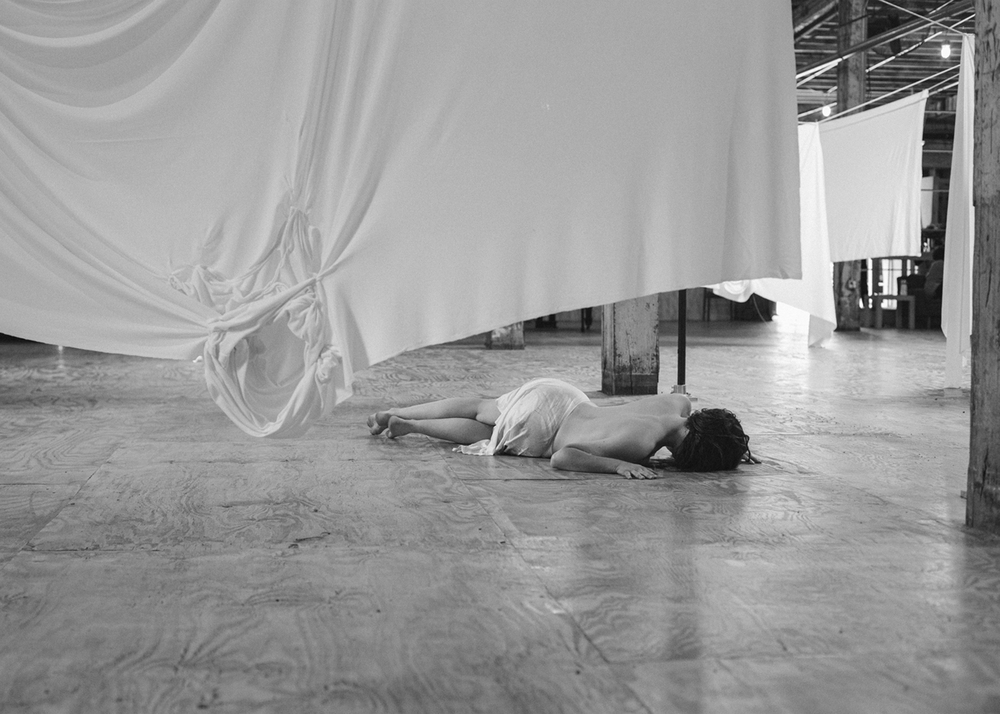
M/OTHER
first performed on May 3, 2021
Yellow Fish Festival VI, Coffey Street Studio, Brooklyn, NY
performed once in 2021
JOCELYN BEAUSIRE
Seattle, WA / Princeton, NJ
345575710j345575710o345575710s345575710s345575710.345575710b345575710e345575710a345575710u345575710s345575710i345575710r345575710e345575710@345575710g345575710m345575710a345575710i345575710l345575710.345575710c345575710o345575710m
jocelynbeausire.com
M/OTHER
JOCELYN BEAUSIRE
Over seven days, for three hours a day, I enact a continuous, repetitive maternal division—separating and reseparating, birthing and being birthed.
As wheat is winnowed, chaff is separated from seed by wind. The chaff returns to the soil, the seed to the stomach. The abject is seen as productive insomuch as it feeds, clothes, and mothers. Bondage occurs through milk, division through movement in air. The seed is taken and turned—I am productive insomuch as I spread, pull, perpetuate. Medieval monks had visions of suckling the Virgin Mary. Disunion wounds are cauterized later in life. I always hear hymns in my mother’s voice.
Seven white, baby-cotton sheets are hung from lines across the space by 200 feet of rope, secured by steel cotter pins. A white plastic lawn chair sits at the head, holding six bags of spelt seed. Monday through Saturday I enter the space in a white, baby-cotton dress, and wash my face and hands in a pewter offering bowl. I stand in front of one of the sheets and sew myself to it with a needle and white thread, tugging the perimeter as tightly as possible. I slowly pull myself out. I drag myself along the floor and onto the chair, holding the seed to my breast. The space fills with a four-channel recitation I had sung months earlier, of twelve hymns through a mouthful of milk. They form a Lutheran chorale.
On the seventh day, the space is stitched with traces—sheets hung with ripped dresses, strands of hair, needles, seed. My knees are raw. On the wall, a projection shows four hours of continuous footage of a baby-cotton sheet erected in a juvenile spelt field, slowly revealed as the sun rose.
“M/other” is the result of nine months of research into the spatial implications of maternal division. Exploring parallels with the process of wheat winnowing and following Julia Kristeva’s logic of the maternal abject, I sought to rectify my own relationship with the chain of maternal bodies which gave themselves for me, and with my own feminine, queer body as inherently life-producing.